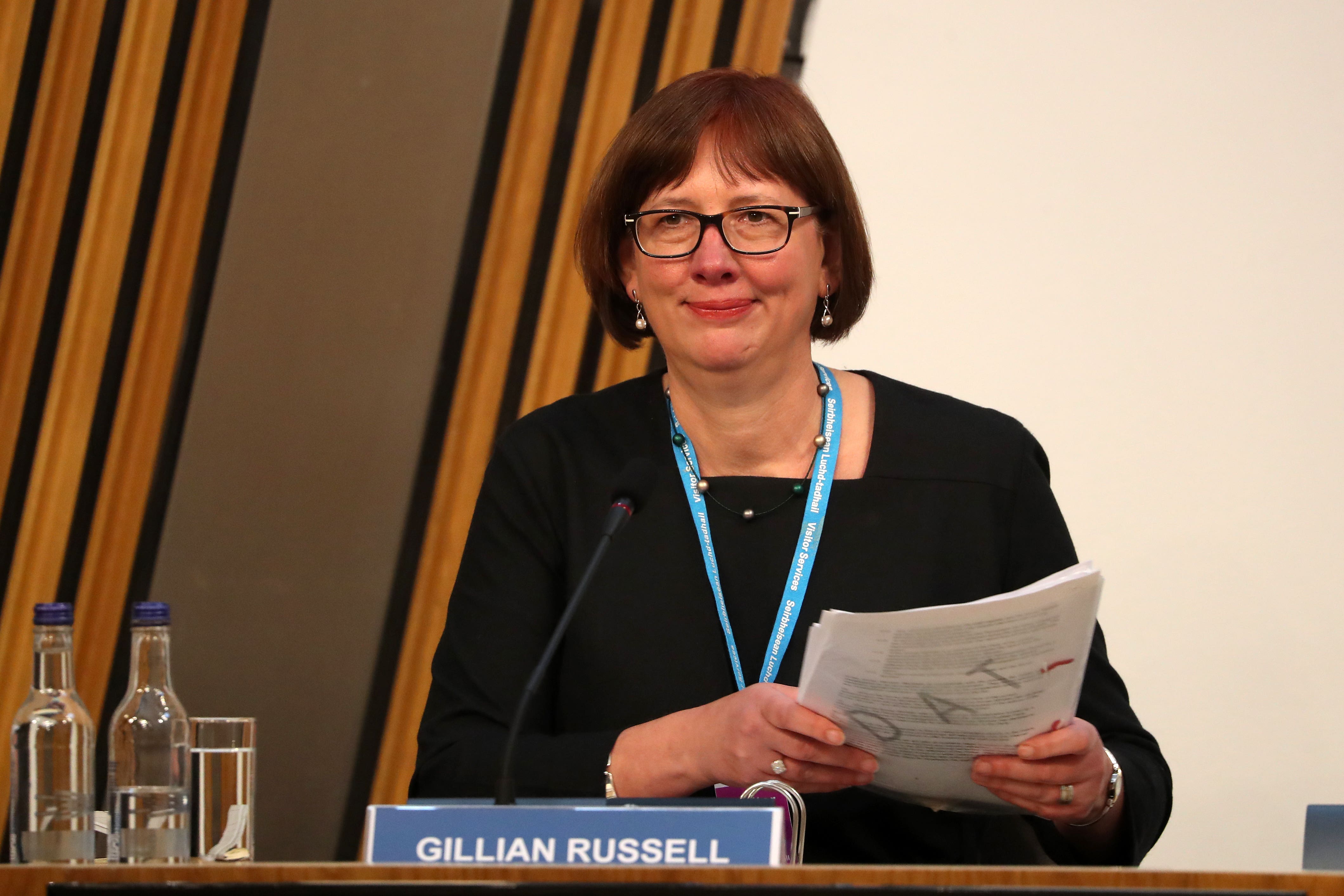No-deal Brexit warnings interfered with pandemic planning, inquiry told
Gillian Russell, a senior civil servant in Scotland, has given evidence to the UK Covid-19 Inquiry.

Your support helps us to tell the story
From reproductive rights to climate change to Big Tech, The Independent is on the ground when the story is developing. Whether it's investigating the financials of Elon Musk's pro-Trump PAC or producing our latest documentary, 'The A Word', which shines a light on the American women fighting for reproductive rights, we know how important it is to parse out the facts from the messaging.
At such a critical moment in US history, we need reporters on the ground. Your donation allows us to keep sending journalists to speak to both sides of the story.
The Independent is trusted by Americans across the entire political spectrum. And unlike many other quality news outlets, we choose not to lock Americans out of our reporting and analysis with paywalls. We believe quality journalism should be available to everyone, paid for by those who can afford it.
Your support makes all the difference.A board set up to work on Scotland’s preparations to deal with a pandemic had to suspend meetings for over six months prior to the Covid outbreak because of warnings over the effects of a no-deal Brexit, an inquiry has heard.
Gillian Russell, a senior civil servant who was the director of safer communities in Scotland between 2015 and 2020, told the UK Covid-19 Inquiry that the Scottish Government Pandemic Flu Preparedness Board (PFPB) made “disappointing” progress on its plans prior to the pandemic.
The inquiry heard the board was commissioned in the summer of 2017 by then deputy first minister John Swinney, who is due to give evidence to the inquiry on Thursday, and the group was formed “to lead on Scotland’s interests at UK level and further develop preparedness in Scotland”.
The discussion came after Kate Blackwell KC raised the subject of the Scottish Government’s simulation of a flu pandemic in 2016 named Operation Silver Swan, and a series of recommendations made after the exercise to improve the nation’s readiness to deal with a pandemic.
She told the inquiry a number of meetings were subsequently held by health officials to review progress on the delivery of those recommendations as well as further calls for improvements made following another UK-wide pandemic rehearsal called Operation Cygnus one year later.
Ms Blackwell pointed out many of the recommendations had still not been fully implemented by June 2019, however, and went on to ask Ms Russell why minutes of a resilience team meeting held that month to review progress stated work to deliver them had been “paused”.
Ms Russell replied: “In October 2018 we were presented with the Yellowhammer planning assumptions for a no-deal Brexit and they were significantly challenging.
“A decision was taken that priority should be given to working through how we would mitigate the significant risks that would immediately crystalise on a no-deal Brexit.
“That took up a huge amount of strategic capacity across many parts of Scottish Government, including the resilience co-ordination of a lot of that work.”
Turning to the formation of the PFPB to oversee the work, Ms Blackwell went on to ask Ms Russell why it appeared the group initially met every two months then stopped meeting altogether between November 2018 and June 2019.
Ms Russell again cited behind-the-scenes planning for leaving the EU as the reason the group failed to convene. “That was no-deal Brexit”, she said.
Asked if there had also been a problem with resources, Ms Russell replied: “There’s a finite resource in Government of people with certain skills and expertise.”
She went on to explain that employees with expertise on subjects such as drug supplies would have been involved in pandemic preparedness, but had to be tasked to consider the effect a no-deal Brexit would have on supplies instead.
“There was a lot of work across Government to try to mitigate and understand those risks,” she said.
Noting some outstanding work of pandemic preparedness was then later described in documents as being dealt with under the term “business as usual”, Ms Blackwell asked: “It was a disappointing response, wasn’t it, to the recommendations from both Silver Swan and Cygnus?”
Ms Russell replied: “It was disappointing but other factors came into play.”
Meanwhile, it had been widely reported that Scotland’s former chief medical officer would give evidence to the inquiry on Wednesday.
But Dr Catherine Calderwood, who quit her role after breaching her own lockdown rules by travelling to her second home during the first lockdown, did not appear for questioning.
No explanation was provided for her absence but it is understood she will now be called later in the inquiry to give her evidence.
A Scottish Government spokesperson said: “Dr Calderwood recently suffered an accident that required emergency medical treatment.”